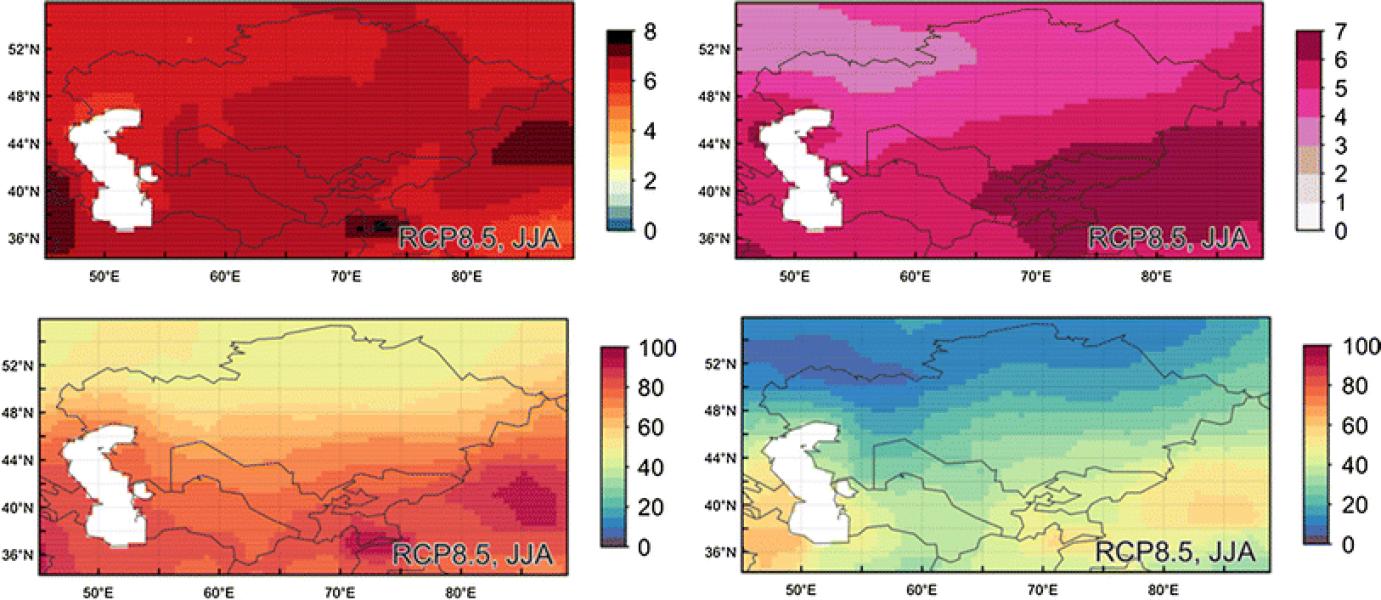Central Asia stands out as one of the world’s most susceptible regions to the impacts of climate change. Experiencing a continual rise in overall temperature, the region is anticipated to confront even higher levels in the forthcoming decades. This, coupled with the accelerated melting of glaciers in its mountainous areas and poor water management, transforms annual water scarcity into a critical dry hazard. The consequences of climate change in Central Asia have already begun to adversely affect the population, leading to significant disruptions in the economies and environmental security of the affected countries. Despite various measures to tackle the issue, a considerable knowledge gap persists in climate change studies in Central Asia, hindering the development of well-informed and evidence-based climate policies. As a small contribution, the CAB Data Blog series offers readers an opportunity to explore public opinions on climate change in the region.

Graph Source: Climate change impacts in Central Asia and their implications for development. Regional Environmental Change
The question about the environment, specifically climate change, has been a recurring theme in the CAB Survey questionnaires in Uzbekistan, Tajikistan, and Turkmenistan, providing valuable insights into the public's attitudes toward this critical issue. Typically, these surveys incorporate several questions covering:
- Overall evaluation of the ecological state of the country.
- Concerns about environmental problems.
- Attitudes toward climate change and opinions on its causes.
- Views on the government's attention to environmental problems.
In this publication, our attention is directed towards Uzbekistan, a nation grappling with an increasing water deficit of 3 billion cubic meters and encountering elevated vulnerability to dry hazards due to its geographical location and environmental characteristics.
How do Uzbeks see ecology and climate change?
During the spring of 2023, the majority of respondents in Uzbekistan held a positive view of the country's environmental situation. However, a quarter of the respondents rated the state of the environment as very bad, with an additional 18% considering it somewhat bad.
When asked about their primary concerns, only 2% specifically mentioned climate change, with the majority focusing on more immediate issues such as air pollution, general pollution, lack of or problems with access to water, it's pollution, and inefficient waste management.
Nevertheless, when asked directly, a substantial majority of Uzbeks express concern about climate change. Up to 40% of respondents consider it a very serious problem, while another 40% describe it as a fairly serious issue. A mere 10% do not perceive it as a problem at all.
What are the causes of climate change?
Among those who acknowledge climate change as a problem, approximately 30% (considered as a proportion of all respondents) were unable to specify the causes. However, among those who did provide insights, common attributions included pollution, industrialization, human activities, a lack of water, and/or the drying up of the Aral Sea as factors contributing to climate change on the planet. Global warming was cited as a direct cause of climate change by only 4% of those surveyed.
The range of perceived causes underscores the multifaceted nature and certain limitations in the public's understanding of the factors influencing climate change in Uzbekistan. When considered within the broader context of environmental issues, respondents focus on visible and already concerning environmental problems, potentially overlooking deeper or indirect manifestations of climate change impacts. Moreover, the significant proportion of respondents finding it challenging to answer may suggest a lower level of awareness regarding the causes and consequences of climate change.
Whether and to what extent the country should prioritize environmental issues, an overwhelming majority of respondents unequivocally state that it should be high on their country's agenda.

